#400 People Eerily Died From Dancing. To This Day
Explore tagged Tumblr posts
Text
In 1518, 400 People Eerily Died From Dancing. To This Day, Nobody Knows Why
It was a normal July day in Alsace, in what is today France, in 1518. People were going about their business in the city of Strasbourg.
Then a woman identified only asFrau Troffer or Troffea began dancing in the street, with what people would later describe as a grimaceof pain on her face. She wouldn’t stop. It was almost as though shecouldn’t stop, and she kept on dancing for six days straight.
But that wasn’t all.
By the end of those six days, 34 more people had joined her in her weird, compulsive dance,prancing around the street all day and night.
It didn’t stop there. According to historical records, some 400 peoplestarted dancing and couldn’t stop. Most of them were women. People died of exhaustion, heart attacks, or strokes as they danced, dropping in the street.
And it went on like this all summer, with the death toll rising and fear gripping those who weren’t afflicted.
Finally, at the end of summer, the surviving dancers were taken to a hilltop to pray. The mania eventually stopped and things calmed down once again.
However, the mystery remained. Why had this happened? What would cause people to dance night and day to the point of harming or even killing themselves?
The Dancing Plague of 1518, as it’s come to be known, is one of the great unsolved mysteries of time, just one of those things we may never have the answer to, like the identity of a mysterious skyjacker or who’s really making designs in crop fields.
Read on to learn more about this eerie and macabre mystery, and let us know your theories!
[H/T: Dusty Old Thing]
Like our Page
Share on Facebook
Share on Facebook
Wikimedia Commons
In the summer of 1518 in Alsace, it’s recorded that some 400 people, mainly women, started dancing uncontrollably for weeks.
Now known as the Dancing Plague, it endures as one of the more bizarre mysteries in history.
What caused it? And why did it affect so many people? Is there a natural explanation, or is something supernatural to blame?
Wikimedia Commons
What’s even weirder is that the 1518 outbreak wasn’t the first “dancing mania” to occur, nor was it the last. However, it was the largest one ever recorded.
Uncontrollable dancing frenzies have been recorded across Europe since the 600s, finally disappearing from the historical record in the 1600s that’s a thousand years of dancing mania!
Wikimedia Commons
The theory at the time was that dancing was caused by “hot blood,” and that the only cure was to simply dance it all out. In hindsight, this probably wasn’t the best idea.
Wikimedia Commons
Today, historians think the mania was brought on by the hardships of life and by the peoples’ general superstitions.
In 1518, famine and disease were all over Alsace. Life was very hard, and death was everywhere.
The pressures may have pushed people to their breaking point, leading to a huge, violent, and bizarre hysteria.
Wikimedia Commons
The compulsion to dance is also sometimes called the “St. Vitus dance,” because it was believed that St. Vitus had the power to punish people by cursing them to dance uncontrollably.
Today, we know about a disease calledSydenham’s chorea, which is characterized by rapid jerking motions of the hands, feet, and face. It’s usually found in people suffering from acute rheumatic fever.
But could that have affected so many people in such a short time?
Wikimedia Commons
Another theory blames ergot, a fungus that grows on grains that when ingested in large enough quantities, can cause hallucinations and erratic behavior.
This is the same fungus that some claim was responsible for the hysteria that caused the Salem witch trials in 1692.
Wikimedia Commons
When the plague died down, the people of Strasbourg went about their lives as best they could. The Dancing Plague of 1518, however, continued to fascinate historians and scientists alike.
We may never know what caused 400 people to start dancing and never stop, and we know we’ve never seen anything quite like it since.
What do you think caused it? Could it have been some freaky fungus? Or do you think maybe a record keeper back in the day decided to have a little fun with a crazy story?
Let us know, andSHARE to see your friends’ theories!
Read more: http://bit.ly/2j6VSQh
from In 1518, 400 People Eerily Died From Dancing. To This Day, Nobody Knows Why
0 notes
Photo
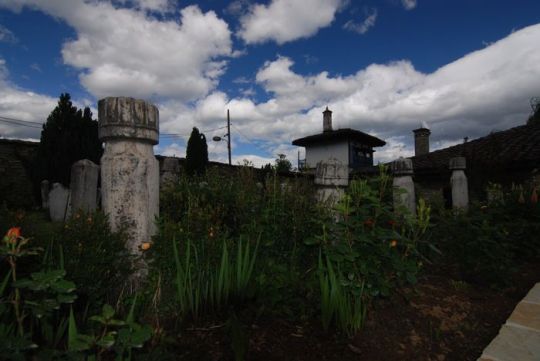
Catalaunian Fields in northern Gau
This dance of forces across northern Gaul ended in July 451 on the Catalaunian Fields in northern Gaul. In the sixth century this was already incorrectly considered one of the great battles of the western world, and historians imagined an impeccable Latin oration for Attila as he suitably roused his troops at the outset of battle:
After victories over such great nations, after bringing the world to its knees if only you would stop to receive it, I would think it foolish to try to sharpen your spirits with words as if you were novices. Let the new general or the untried army try such things. It is not right for me to say anything trite here, nor should you have to listen to such.24
The massed armies—probably indistinguishable from one another to the observer25—clashed that day and the Huns came off second best, retreating across the Rhine.
The next year, weakened by defeat and perhaps also by disease among his people, Attila confined himself to raiding north of the Po River in Italy, returning again to his cross-Danube haunts for the winter. There he died suddenly. Gaudy rumor assigned his death to a wedding night, barbaric excess, and a resulting hemorrhage—or was it a knife wielded by his new wife?—but we have no reason to take any such stories at face value. Attila was gone, and so was the threat he represented. The Huns did not disappear, and those bearing similar names and some relationship to the diverse groups that had assembled under Attila would crop up long after; but in that moment, the greatest force outside the empire that had both supported and threatened it crumbled. Aetius had prevailed, by some mixture of luck, stubbornness, and valor.
The Roman government
He was not trusted or loved. The Roman government had come to depend entirely on the leadership of men like him—men who saved them, but whom they repeatedly hunted down and murdered. Stilicho had been killed in 408 at his emperor’s order, and perhaps thousands of other “barbarians”—good, assimilated Romans in every respect—were slain at the same time. Aetius faced worse balkan tours 2023. His emperor, whom he had served and saved for two decades, turned on him and in 454 in Ravenna, when Aetius was making a report on the state of the army’s finances, Valentinian murdered him with his own hand—and the help of a few burly soldiers who held the victim for the coup de grace. Six months later, allies of Aetius murdered Valentinian. They had been put up to it by other members of the court; the good order of Rome was preserved. The dignified senator Petronius Maximus, qualified by his distinguished rank and family and nothing else, became the emperor. He lasted all of two months. Three weeks later, in June 455, the Vandals reached Rome, sacked the city, and carried away (allegedly) precious treasures that Emperor Titus had looted from the Temple of Jerusalem almost 400 years earlier; they also took along an empress and two princesses.
The Romans’ murders of Stilicho and Aetius were eerily similar. An imperial regime under pressure gave command to a general who straddled the border dividing Roman from barbarian. Over a few years, the general succeeded in calming a chaotic situation. He used his judgment and diplomacy to negotiate effectively with other generals who could be dangerous. The progress was palpable and of great value, and at the point of greatest success, the ineffective, traditionalist, and uncomprehrending emperor became anxious, jealous, and optimistic—in short, he lost touch with reality—and engineered the murder of the general, who had been the making of him. What becomes of the emperor in such a case is of no interest, but the goals of calm and prosperity that were before in reach now receded dramatically from view. The most powerful force working against the Roman empire on such occasions was the ambition, the patriotism, and the stupidity of the empire’s leaders themselves.
0 notes
Photo
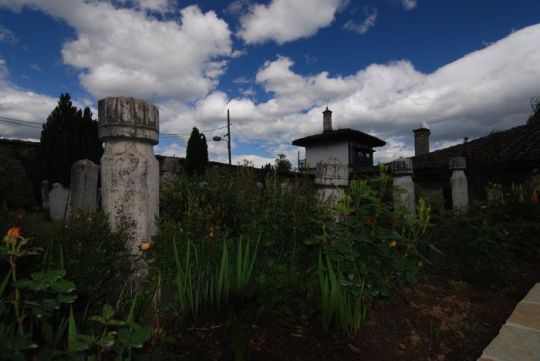
Catalaunian Fields in northern Gau
This dance of forces across northern Gaul ended in July 451 on the Catalaunian Fields in northern Gaul. In the sixth century this was already incorrectly considered one of the great battles of the western world, and historians imagined an impeccable Latin oration for Attila as he suitably roused his troops at the outset of battle:
After victories over such great nations, after bringing the world to its knees if only you would stop to receive it, I would think it foolish to try to sharpen your spirits with words as if you were novices. Let the new general or the untried army try such things. It is not right for me to say anything trite here, nor should you have to listen to such.24
The massed armies—probably indistinguishable from one another to the observer25—clashed that day and the Huns came off second best, retreating across the Rhine.
The next year, weakened by defeat and perhaps also by disease among his people, Attila confined himself to raiding north of the Po River in Italy, returning again to his cross-Danube haunts for the winter. There he died suddenly. Gaudy rumor assigned his death to a wedding night, barbaric excess, and a resulting hemorrhage—or was it a knife wielded by his new wife?—but we have no reason to take any such stories at face value. Attila was gone, and so was the threat he represented. The Huns did not disappear, and those bearing similar names and some relationship to the diverse groups that had assembled under Attila would crop up long after; but in that moment, the greatest force outside the empire that had both supported and threatened it crumbled. Aetius had prevailed, by some mixture of luck, stubbornness, and valor.
The Roman government
He was not trusted or loved. The Roman government had come to depend entirely on the leadership of men like him—men who saved them, but whom they repeatedly hunted down and murdered. Stilicho had been killed in 408 at his emperor’s order, and perhaps thousands of other “barbarians”—good, assimilated Romans in every respect—were slain at the same time. Aetius faced worse balkan tours 2023. His emperor, whom he had served and saved for two decades, turned on him and in 454 in Ravenna, when Aetius was making a report on the state of the army’s finances, Valentinian murdered him with his own hand—and the help of a few burly soldiers who held the victim for the coup de grace. Six months later, allies of Aetius murdered Valentinian. They had been put up to it by other members of the court; the good order of Rome was preserved. The dignified senator Petronius Maximus, qualified by his distinguished rank and family and nothing else, became the emperor. He lasted all of two months. Three weeks later, in June 455, the Vandals reached Rome, sacked the city, and carried away (allegedly) precious treasures that Emperor Titus had looted from the Temple of Jerusalem almost 400 years earlier; they also took along an empress and two princesses.
The Romans’ murders of Stilicho and Aetius were eerily similar. An imperial regime under pressure gave command to a general who straddled the border dividing Roman from barbarian. Over a few years, the general succeeded in calming a chaotic situation. He used his judgment and diplomacy to negotiate effectively with other generals who could be dangerous. The progress was palpable and of great value, and at the point of greatest success, the ineffective, traditionalist, and uncomprehrending emperor became anxious, jealous, and optimistic—in short, he lost touch with reality—and engineered the murder of the general, who had been the making of him. What becomes of the emperor in such a case is of no interest, but the goals of calm and prosperity that were before in reach now receded dramatically from view. The most powerful force working against the Roman empire on such occasions was the ambition, the patriotism, and the stupidity of the empire’s leaders themselves.
0 notes
Photo
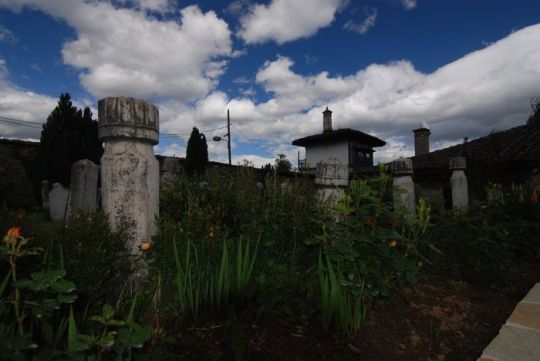
Catalaunian Fields in northern Gau
This dance of forces across northern Gaul ended in July 451 on the Catalaunian Fields in northern Gaul. In the sixth century this was already incorrectly considered one of the great battles of the western world, and historians imagined an impeccable Latin oration for Attila as he suitably roused his troops at the outset of battle:
After victories over such great nations, after bringing the world to its knees if only you would stop to receive it, I would think it foolish to try to sharpen your spirits with words as if you were novices. Let the new general or the untried army try such things. It is not right for me to say anything trite here, nor should you have to listen to such.24
The massed armies—probably indistinguishable from one another to the observer25—clashed that day and the Huns came off second best, retreating across the Rhine.
The next year, weakened by defeat and perhaps also by disease among his people, Attila confined himself to raiding north of the Po River in Italy, returning again to his cross-Danube haunts for the winter. There he died suddenly. Gaudy rumor assigned his death to a wedding night, barbaric excess, and a resulting hemorrhage—or was it a knife wielded by his new wife?—but we have no reason to take any such stories at face value. Attila was gone, and so was the threat he represented. The Huns did not disappear, and those bearing similar names and some relationship to the diverse groups that had assembled under Attila would crop up long after; but in that moment, the greatest force outside the empire that had both supported and threatened it crumbled. Aetius had prevailed, by some mixture of luck, stubbornness, and valor.
The Roman government
He was not trusted or loved. The Roman government had come to depend entirely on the leadership of men like him—men who saved them, but whom they repeatedly hunted down and murdered. Stilicho had been killed in 408 at his emperor’s order, and perhaps thousands of other “barbarians”—good, assimilated Romans in every respect—were slain at the same time. Aetius faced worse balkan tours 2023. His emperor, whom he had served and saved for two decades, turned on him and in 454 in Ravenna, when Aetius was making a report on the state of the army’s finances, Valentinian murdered him with his own hand—and the help of a few burly soldiers who held the victim for the coup de grace. Six months later, allies of Aetius murdered Valentinian. They had been put up to it by other members of the court; the good order of Rome was preserved. The dignified senator Petronius Maximus, qualified by his distinguished rank and family and nothing else, became the emperor. He lasted all of two months. Three weeks later, in June 455, the Vandals reached Rome, sacked the city, and carried away (allegedly) precious treasures that Emperor Titus had looted from the Temple of Jerusalem almost 400 years earlier; they also took along an empress and two princesses.
The Romans’ murders of Stilicho and Aetius were eerily similar. An imperial regime under pressure gave command to a general who straddled the border dividing Roman from barbarian. Over a few years, the general succeeded in calming a chaotic situation. He used his judgment and diplomacy to negotiate effectively with other generals who could be dangerous. The progress was palpable and of great value, and at the point of greatest success, the ineffective, traditionalist, and uncomprehrending emperor became anxious, jealous, and optimistic—in short, he lost touch with reality—and engineered the murder of the general, who had been the making of him. What becomes of the emperor in such a case is of no interest, but the goals of calm and prosperity that were before in reach now receded dramatically from view. The most powerful force working against the Roman empire on such occasions was the ambition, the patriotism, and the stupidity of the empire’s leaders themselves.
0 notes
Photo
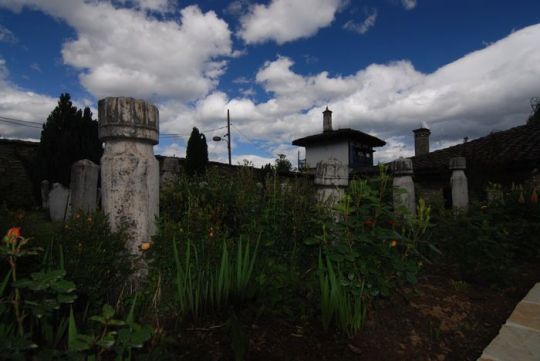
Catalaunian Fields in northern Gau
This dance of forces across northern Gaul ended in July 451 on the Catalaunian Fields in northern Gaul. In the sixth century this was already incorrectly considered one of the great battles of the western world, and historians imagined an impeccable Latin oration for Attila as he suitably roused his troops at the outset of battle:
After victories over such great nations, after bringing the world to its knees if only you would stop to receive it, I would think it foolish to try to sharpen your spirits with words as if you were novices. Let the new general or the untried army try such things. It is not right for me to say anything trite here, nor should you have to listen to such.24
The massed armies—probably indistinguishable from one another to the observer25—clashed that day and the Huns came off second best, retreating across the Rhine.
The next year, weakened by defeat and perhaps also by disease among his people, Attila confined himself to raiding north of the Po River in Italy, returning again to his cross-Danube haunts for the winter. There he died suddenly. Gaudy rumor assigned his death to a wedding night, barbaric excess, and a resulting hemorrhage—or was it a knife wielded by his new wife?—but we have no reason to take any such stories at face value. Attila was gone, and so was the threat he represented. The Huns did not disappear, and those bearing similar names and some relationship to the diverse groups that had assembled under Attila would crop up long after; but in that moment, the greatest force outside the empire that had both supported and threatened it crumbled. Aetius had prevailed, by some mixture of luck, stubbornness, and valor.
The Roman government
He was not trusted or loved. The Roman government had come to depend entirely on the leadership of men like him—men who saved them, but whom they repeatedly hunted down and murdered. Stilicho had been killed in 408 at his emperor’s order, and perhaps thousands of other “barbarians”—good, assimilated Romans in every respect—were slain at the same time. Aetius faced worse balkan tours 2023. His emperor, whom he had served and saved for two decades, turned on him and in 454 in Ravenna, when Aetius was making a report on the state of the army’s finances, Valentinian murdered him with his own hand—and the help of a few burly soldiers who held the victim for the coup de grace. Six months later, allies of Aetius murdered Valentinian. They had been put up to it by other members of the court; the good order of Rome was preserved. The dignified senator Petronius Maximus, qualified by his distinguished rank and family and nothing else, became the emperor. He lasted all of two months. Three weeks later, in June 455, the Vandals reached Rome, sacked the city, and carried away (allegedly) precious treasures that Emperor Titus had looted from the Temple of Jerusalem almost 400 years earlier; they also took along an empress and two princesses.
The Romans’ murders of Stilicho and Aetius were eerily similar. An imperial regime under pressure gave command to a general who straddled the border dividing Roman from barbarian. Over a few years, the general succeeded in calming a chaotic situation. He used his judgment and diplomacy to negotiate effectively with other generals who could be dangerous. The progress was palpable and of great value, and at the point of greatest success, the ineffective, traditionalist, and uncomprehrending emperor became anxious, jealous, and optimistic—in short, he lost touch with reality—and engineered the murder of the general, who had been the making of him. What becomes of the emperor in such a case is of no interest, but the goals of calm and prosperity that were before in reach now receded dramatically from view. The most powerful force working against the Roman empire on such occasions was the ambition, the patriotism, and the stupidity of the empire’s leaders themselves.
0 notes
Photo
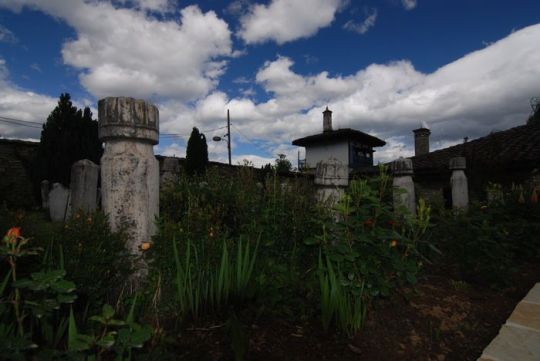
Catalaunian Fields in northern Gau
This dance of forces across northern Gaul ended in July 451 on the Catalaunian Fields in northern Gaul. In the sixth century this was already incorrectly considered one of the great battles of the western world, and historians imagined an impeccable Latin oration for Attila as he suitably roused his troops at the outset of battle:
After victories over such great nations, after bringing the world to its knees if only you would stop to receive it, I would think it foolish to try to sharpen your spirits with words as if you were novices. Let the new general or the untried army try such things. It is not right for me to say anything trite here, nor should you have to listen to such.24
The massed armies—probably indistinguishable from one another to the observer25—clashed that day and the Huns came off second best, retreating across the Rhine.
The next year, weakened by defeat and perhaps also by disease among his people, Attila confined himself to raiding north of the Po River in Italy, returning again to his cross-Danube haunts for the winter. There he died suddenly. Gaudy rumor assigned his death to a wedding night, barbaric excess, and a resulting hemorrhage—or was it a knife wielded by his new wife?—but we have no reason to take any such stories at face value. Attila was gone, and so was the threat he represented. The Huns did not disappear, and those bearing similar names and some relationship to the diverse groups that had assembled under Attila would crop up long after; but in that moment, the greatest force outside the empire that had both supported and threatened it crumbled. Aetius had prevailed, by some mixture of luck, stubbornness, and valor.
The Roman government
He was not trusted or loved. The Roman government had come to depend entirely on the leadership of men like him—men who saved them, but whom they repeatedly hunted down and murdered. Stilicho had been killed in 408 at his emperor’s order, and perhaps thousands of other “barbarians”—good, assimilated Romans in every respect—were slain at the same time. Aetius faced worse balkan tours 2023. His emperor, whom he had served and saved for two decades, turned on him and in 454 in Ravenna, when Aetius was making a report on the state of the army’s finances, Valentinian murdered him with his own hand—and the help of a few burly soldiers who held the victim for the coup de grace. Six months later, allies of Aetius murdered Valentinian. They had been put up to it by other members of the court; the good order of Rome was preserved. The dignified senator Petronius Maximus, qualified by his distinguished rank and family and nothing else, became the emperor. He lasted all of two months. Three weeks later, in June 455, the Vandals reached Rome, sacked the city, and carried away (allegedly) precious treasures that Emperor Titus had looted from the Temple of Jerusalem almost 400 years earlier; they also took along an empress and two princesses.
The Romans’ murders of Stilicho and Aetius were eerily similar. An imperial regime under pressure gave command to a general who straddled the border dividing Roman from barbarian. Over a few years, the general succeeded in calming a chaotic situation. He used his judgment and diplomacy to negotiate effectively with other generals who could be dangerous. The progress was palpable and of great value, and at the point of greatest success, the ineffective, traditionalist, and uncomprehrending emperor became anxious, jealous, and optimistic—in short, he lost touch with reality—and engineered the murder of the general, who had been the making of him. What becomes of the emperor in such a case is of no interest, but the goals of calm and prosperity that were before in reach now receded dramatically from view. The most powerful force working against the Roman empire on such occasions was the ambition, the patriotism, and the stupidity of the empire’s leaders themselves.
0 notes
Photo
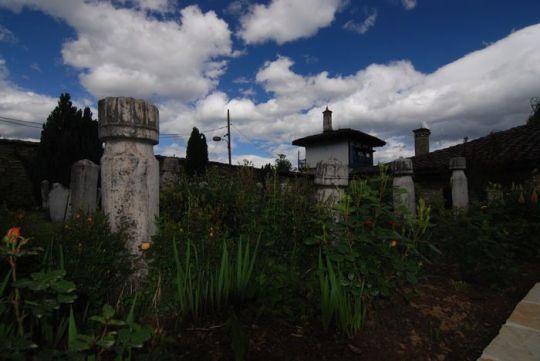
Catalaunian Fields in northern Gau
This dance of forces across northern Gaul ended in July 451 on the Catalaunian Fields in northern Gaul. In the sixth century this was already incorrectly considered one of the great battles of the western world, and historians imagined an impeccable Latin oration for Attila as he suitably roused his troops at the outset of battle:
After victories over such great nations, after bringing the world to its knees if only you would stop to receive it, I would think it foolish to try to sharpen your spirits with words as if you were novices. Let the new general or the untried army try such things. It is not right for me to say anything trite here, nor should you have to listen to such.24
The massed armies—probably indistinguishable from one another to the observer25—clashed that day and the Huns came off second best, retreating across the Rhine.
The next year, weakened by defeat and perhaps also by disease among his people, Attila confined himself to raiding north of the Po River in Italy, returning again to his cross-Danube haunts for the winter. There he died suddenly. Gaudy rumor assigned his death to a wedding night, barbaric excess, and a resulting hemorrhage—or was it a knife wielded by his new wife?—but we have no reason to take any such stories at face value. Attila was gone, and so was the threat he represented. The Huns did not disappear, and those bearing similar names and some relationship to the diverse groups that had assembled under Attila would crop up long after; but in that moment, the greatest force outside the empire that had both supported and threatened it crumbled. Aetius had prevailed, by some mixture of luck, stubbornness, and valor.
The Roman government
He was not trusted or loved. The Roman government had come to depend entirely on the leadership of men like him—men who saved them, but whom they repeatedly hunted down and murdered. Stilicho had been killed in 408 at his emperor’s order, and perhaps thousands of other “barbarians”—good, assimilated Romans in every respect—were slain at the same time. Aetius faced worse balkan tours 2023. His emperor, whom he had served and saved for two decades, turned on him and in 454 in Ravenna, when Aetius was making a report on the state of the army’s finances, Valentinian murdered him with his own hand—and the help of a few burly soldiers who held the victim for the coup de grace. Six months later, allies of Aetius murdered Valentinian. They had been put up to it by other members of the court; the good order of Rome was preserved. The dignified senator Petronius Maximus, qualified by his distinguished rank and family and nothing else, became the emperor. He lasted all of two months. Three weeks later, in June 455, the Vandals reached Rome, sacked the city, and carried away (allegedly) precious treasures that Emperor Titus had looted from the Temple of Jerusalem almost 400 years earlier; they also took along an empress and two princesses.
The Romans’ murders of Stilicho and Aetius were eerily similar. An imperial regime under pressure gave command to a general who straddled the border dividing Roman from barbarian. Over a few years, the general succeeded in calming a chaotic situation. He used his judgment and diplomacy to negotiate effectively with other generals who could be dangerous. The progress was palpable and of great value, and at the point of greatest success, the ineffective, traditionalist, and uncomprehrending emperor became anxious, jealous, and optimistic—in short, he lost touch with reality—and engineered the murder of the general, who had been the making of him. What becomes of the emperor in such a case is of no interest, but the goals of calm and prosperity that were before in reach now receded dramatically from view. The most powerful force working against the Roman empire on such occasions was the ambition, the patriotism, and the stupidity of the empire’s leaders themselves.
0 notes
Photo
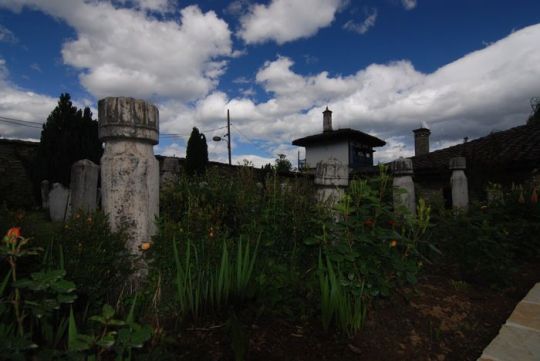
Catalaunian Fields in northern Gau
This dance of forces across northern Gaul ended in July 451 on the Catalaunian Fields in northern Gaul. In the sixth century this was already incorrectly considered one of the great battles of the western world, and historians imagined an impeccable Latin oration for Attila as he suitably roused his troops at the outset of battle:
After victories over such great nations, after bringing the world to its knees if only you would stop to receive it, I would think it foolish to try to sharpen your spirits with words as if you were novices. Let the new general or the untried army try such things. It is not right for me to say anything trite here, nor should you have to listen to such.24
The massed armies—probably indistinguishable from one another to the observer25—clashed that day and the Huns came off second best, retreating across the Rhine.
The next year, weakened by defeat and perhaps also by disease among his people, Attila confined himself to raiding north of the Po River in Italy, returning again to his cross-Danube haunts for the winter. There he died suddenly. Gaudy rumor assigned his death to a wedding night, barbaric excess, and a resulting hemorrhage—or was it a knife wielded by his new wife?—but we have no reason to take any such stories at face value. Attila was gone, and so was the threat he represented. The Huns did not disappear, and those bearing similar names and some relationship to the diverse groups that had assembled under Attila would crop up long after; but in that moment, the greatest force outside the empire that had both supported and threatened it crumbled. Aetius had prevailed, by some mixture of luck, stubbornness, and valor.
The Roman government
He was not trusted or loved. The Roman government had come to depend entirely on the leadership of men like him—men who saved them, but whom they repeatedly hunted down and murdered. Stilicho had been killed in 408 at his emperor’s order, and perhaps thousands of other “barbarians”—good, assimilated Romans in every respect—were slain at the same time. Aetius faced worse balkan tours 2023. His emperor, whom he had served and saved for two decades, turned on him and in 454 in Ravenna, when Aetius was making a report on the state of the army’s finances, Valentinian murdered him with his own hand—and the help of a few burly soldiers who held the victim for the coup de grace. Six months later, allies of Aetius murdered Valentinian. They had been put up to it by other members of the court; the good order of Rome was preserved. The dignified senator Petronius Maximus, qualified by his distinguished rank and family and nothing else, became the emperor. He lasted all of two months. Three weeks later, in June 455, the Vandals reached Rome, sacked the city, and carried away (allegedly) precious treasures that Emperor Titus had looted from the Temple of Jerusalem almost 400 years earlier; they also took along an empress and two princesses.
The Romans’ murders of Stilicho and Aetius were eerily similar. An imperial regime under pressure gave command to a general who straddled the border dividing Roman from barbarian. Over a few years, the general succeeded in calming a chaotic situation. He used his judgment and diplomacy to negotiate effectively with other generals who could be dangerous. The progress was palpable and of great value, and at the point of greatest success, the ineffective, traditionalist, and uncomprehrending emperor became anxious, jealous, and optimistic—in short, he lost touch with reality—and engineered the murder of the general, who had been the making of him. What becomes of the emperor in such a case is of no interest, but the goals of calm and prosperity that were before in reach now receded dramatically from view. The most powerful force working against the Roman empire on such occasions was the ambition, the patriotism, and the stupidity of the empire’s leaders themselves.
0 notes
Photo
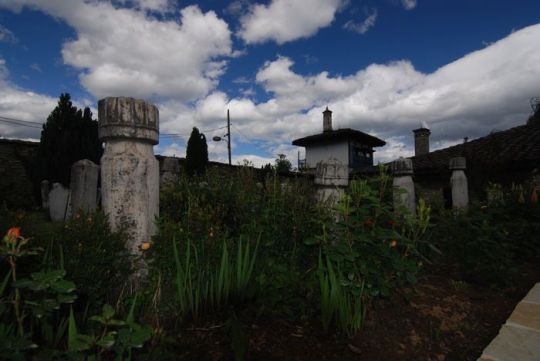
Catalaunian Fields in northern Gau
This dance of forces across northern Gaul ended in July 451 on the Catalaunian Fields in northern Gaul. In the sixth century this was already incorrectly considered one of the great battles of the western world, and historians imagined an impeccable Latin oration for Attila as he suitably roused his troops at the outset of battle:
After victories over such great nations, after bringing the world to its knees if only you would stop to receive it, I would think it foolish to try to sharpen your spirits with words as if you were novices. Let the new general or the untried army try such things. It is not right for me to say anything trite here, nor should you have to listen to such.24
The massed armies—probably indistinguishable from one another to the observer25—clashed that day and the Huns came off second best, retreating across the Rhine.
The next year, weakened by defeat and perhaps also by disease among his people, Attila confined himself to raiding north of the Po River in Italy, returning again to his cross-Danube haunts for the winter. There he died suddenly. Gaudy rumor assigned his death to a wedding night, barbaric excess, and a resulting hemorrhage—or was it a knife wielded by his new wife?—but we have no reason to take any such stories at face value. Attila was gone, and so was the threat he represented. The Huns did not disappear, and those bearing similar names and some relationship to the diverse groups that had assembled under Attila would crop up long after; but in that moment, the greatest force outside the empire that had both supported and threatened it crumbled. Aetius had prevailed, by some mixture of luck, stubbornness, and valor.
The Roman government
He was not trusted or loved. The Roman government had come to depend entirely on the leadership of men like him—men who saved them, but whom they repeatedly hunted down and murdered. Stilicho had been killed in 408 at his emperor’s order, and perhaps thousands of other “barbarians”—good, assimilated Romans in every respect—were slain at the same time. Aetius faced worse balkan tours 2023. His emperor, whom he had served and saved for two decades, turned on him and in 454 in Ravenna, when Aetius was making a report on the state of the army’s finances, Valentinian murdered him with his own hand—and the help of a few burly soldiers who held the victim for the coup de grace. Six months later, allies of Aetius murdered Valentinian. They had been put up to it by other members of the court; the good order of Rome was preserved. The dignified senator Petronius Maximus, qualified by his distinguished rank and family and nothing else, became the emperor. He lasted all of two months. Three weeks later, in June 455, the Vandals reached Rome, sacked the city, and carried away (allegedly) precious treasures that Emperor Titus had looted from the Temple of Jerusalem almost 400 years earlier; they also took along an empress and two princesses.
The Romans’ murders of Stilicho and Aetius were eerily similar. An imperial regime under pressure gave command to a general who straddled the border dividing Roman from barbarian. Over a few years, the general succeeded in calming a chaotic situation. He used his judgment and diplomacy to negotiate effectively with other generals who could be dangerous. The progress was palpable and of great value, and at the point of greatest success, the ineffective, traditionalist, and uncomprehrending emperor became anxious, jealous, and optimistic—in short, he lost touch with reality—and engineered the murder of the general, who had been the making of him. What becomes of the emperor in such a case is of no interest, but the goals of calm and prosperity that were before in reach now receded dramatically from view. The most powerful force working against the Roman empire on such occasions was the ambition, the patriotism, and the stupidity of the empire’s leaders themselves.
0 notes
Photo
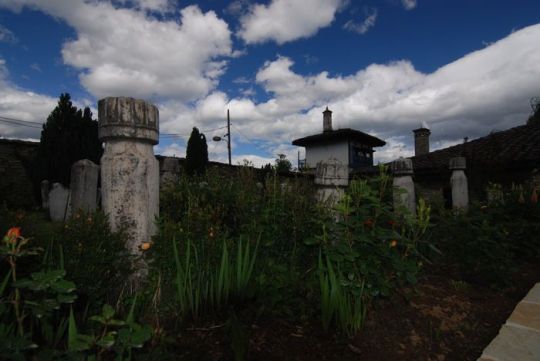
Catalaunian Fields in northern Gau
This dance of forces across northern Gaul ended in July 451 on the Catalaunian Fields in northern Gaul. In the sixth century this was already incorrectly considered one of the great battles of the western world, and historians imagined an impeccable Latin oration for Attila as he suitably roused his troops at the outset of battle:
After victories over such great nations, after bringing the world to its knees if only you would stop to receive it, I would think it foolish to try to sharpen your spirits with words as if you were novices. Let the new general or the untried army try such things. It is not right for me to say anything trite here, nor should you have to listen to such.24
The massed armies—probably indistinguishable from one another to the observer25—clashed that day and the Huns came off second best, retreating across the Rhine.
The next year, weakened by defeat and perhaps also by disease among his people, Attila confined himself to raiding north of the Po River in Italy, returning again to his cross-Danube haunts for the winter. There he died suddenly. Gaudy rumor assigned his death to a wedding night, barbaric excess, and a resulting hemorrhage—or was it a knife wielded by his new wife?—but we have no reason to take any such stories at face value. Attila was gone, and so was the threat he represented. The Huns did not disappear, and those bearing similar names and some relationship to the diverse groups that had assembled under Attila would crop up long after; but in that moment, the greatest force outside the empire that had both supported and threatened it crumbled. Aetius had prevailed, by some mixture of luck, stubbornness, and valor.
The Roman government
He was not trusted or loved. The Roman government had come to depend entirely on the leadership of men like him—men who saved them, but whom they repeatedly hunted down and murdered. Stilicho had been killed in 408 at his emperor’s order, and perhaps thousands of other “barbarians”—good, assimilated Romans in every respect—were slain at the same time. Aetius faced worse balkan tours 2023. His emperor, whom he had served and saved for two decades, turned on him and in 454 in Ravenna, when Aetius was making a report on the state of the army’s finances, Valentinian murdered him with his own hand—and the help of a few burly soldiers who held the victim for the coup de grace. Six months later, allies of Aetius murdered Valentinian. They had been put up to it by other members of the court; the good order of Rome was preserved. The dignified senator Petronius Maximus, qualified by his distinguished rank and family and nothing else, became the emperor. He lasted all of two months. Three weeks later, in June 455, the Vandals reached Rome, sacked the city, and carried away (allegedly) precious treasures that Emperor Titus had looted from the Temple of Jerusalem almost 400 years earlier; they also took along an empress and two princesses.
The Romans’ murders of Stilicho and Aetius were eerily similar. An imperial regime under pressure gave command to a general who straddled the border dividing Roman from barbarian. Over a few years, the general succeeded in calming a chaotic situation. He used his judgment and diplomacy to negotiate effectively with other generals who could be dangerous. The progress was palpable and of great value, and at the point of greatest success, the ineffective, traditionalist, and uncomprehrending emperor became anxious, jealous, and optimistic—in short, he lost touch with reality—and engineered the murder of the general, who had been the making of him. What becomes of the emperor in such a case is of no interest, but the goals of calm and prosperity that were before in reach now receded dramatically from view. The most powerful force working against the Roman empire on such occasions was the ambition, the patriotism, and the stupidity of the empire’s leaders themselves.
0 notes
Photo
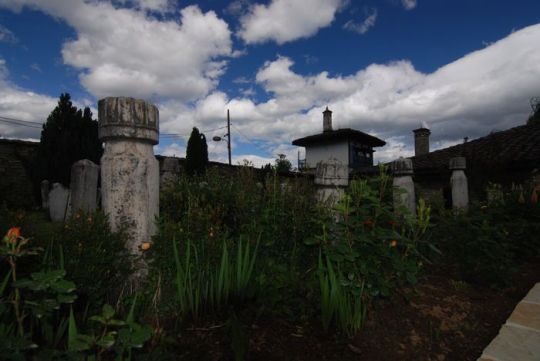
Catalaunian Fields in northern Gau
This dance of forces across northern Gaul ended in July 451 on the Catalaunian Fields in northern Gaul. In the sixth century this was already incorrectly considered one of the great battles of the western world, and historians imagined an impeccable Latin oration for Attila as he suitably roused his troops at the outset of battle:
After victories over such great nations, after bringing the world to its knees if only you would stop to receive it, I would think it foolish to try to sharpen your spirits with words as if you were novices. Let the new general or the untried army try such things. It is not right for me to say anything trite here, nor should you have to listen to such.24
The massed armies—probably indistinguishable from one another to the observer25—clashed that day and the Huns came off second best, retreating across the Rhine.
The next year, weakened by defeat and perhaps also by disease among his people, Attila confined himself to raiding north of the Po River in Italy, returning again to his cross-Danube haunts for the winter. There he died suddenly. Gaudy rumor assigned his death to a wedding night, barbaric excess, and a resulting hemorrhage—or was it a knife wielded by his new wife?—but we have no reason to take any such stories at face value. Attila was gone, and so was the threat he represented. The Huns did not disappear, and those bearing similar names and some relationship to the diverse groups that had assembled under Attila would crop up long after; but in that moment, the greatest force outside the empire that had both supported and threatened it crumbled. Aetius had prevailed, by some mixture of luck, stubbornness, and valor.
The Roman government
He was not trusted or loved. The Roman government had come to depend entirely on the leadership of men like him—men who saved them, but whom they repeatedly hunted down and murdered. Stilicho had been killed in 408 at his emperor’s order, and perhaps thousands of other “barbarians”—good, assimilated Romans in every respect—were slain at the same time. Aetius faced worse balkan tours 2023. His emperor, whom he had served and saved for two decades, turned on him and in 454 in Ravenna, when Aetius was making a report on the state of the army’s finances, Valentinian murdered him with his own hand—and the help of a few burly soldiers who held the victim for the coup de grace. Six months later, allies of Aetius murdered Valentinian. They had been put up to it by other members of the court; the good order of Rome was preserved. The dignified senator Petronius Maximus, qualified by his distinguished rank and family and nothing else, became the emperor. He lasted all of two months. Three weeks later, in June 455, the Vandals reached Rome, sacked the city, and carried away (allegedly) precious treasures that Emperor Titus had looted from the Temple of Jerusalem almost 400 years earlier; they also took along an empress and two princesses.
The Romans’ murders of Stilicho and Aetius were eerily similar. An imperial regime under pressure gave command to a general who straddled the border dividing Roman from barbarian. Over a few years, the general succeeded in calming a chaotic situation. He used his judgment and diplomacy to negotiate effectively with other generals who could be dangerous. The progress was palpable and of great value, and at the point of greatest success, the ineffective, traditionalist, and uncomprehrending emperor became anxious, jealous, and optimistic—in short, he lost touch with reality—and engineered the murder of the general, who had been the making of him. What becomes of the emperor in such a case is of no interest, but the goals of calm and prosperity that were before in reach now receded dramatically from view. The most powerful force working against the Roman empire on such occasions was the ambition, the patriotism, and the stupidity of the empire’s leaders themselves.
0 notes
Photo
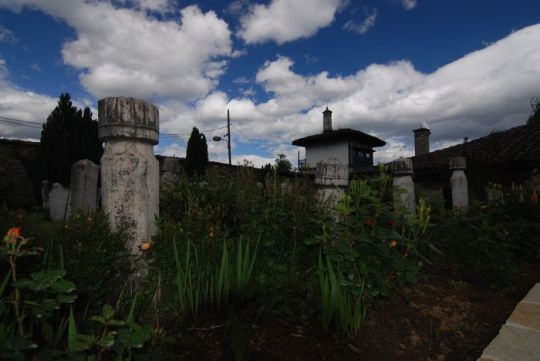
Catalaunian Fields in northern Gau
This dance of forces across northern Gaul ended in July 451 on the Catalaunian Fields in northern Gaul. In the sixth century this was already incorrectly considered one of the great battles of the western world, and historians imagined an impeccable Latin oration for Attila as he suitably roused his troops at the outset of battle:
After victories over such great nations, after bringing the world to its knees if only you would stop to receive it, I would think it foolish to try to sharpen your spirits with words as if you were novices. Let the new general or the untried army try such things. It is not right for me to say anything trite here, nor should you have to listen to such.24
The massed armies—probably indistinguishable from one another to the observer25—clashed that day and the Huns came off second best, retreating across the Rhine.
The next year, weakened by defeat and perhaps also by disease among his people, Attila confined himself to raiding north of the Po River in Italy, returning again to his cross-Danube haunts for the winter. There he died suddenly. Gaudy rumor assigned his death to a wedding night, barbaric excess, and a resulting hemorrhage—or was it a knife wielded by his new wife?—but we have no reason to take any such stories at face value. Attila was gone, and so was the threat he represented. The Huns did not disappear, and those bearing similar names and some relationship to the diverse groups that had assembled under Attila would crop up long after; but in that moment, the greatest force outside the empire that had both supported and threatened it crumbled. Aetius had prevailed, by some mixture of luck, stubbornness, and valor.
The Roman government
He was not trusted or loved. The Roman government had come to depend entirely on the leadership of men like him—men who saved them, but whom they repeatedly hunted down and murdered. Stilicho had been killed in 408 at his emperor’s order, and perhaps thousands of other “barbarians”—good, assimilated Romans in every respect—were slain at the same time. Aetius faced worse balkan tours 2023. His emperor, whom he had served and saved for two decades, turned on him and in 454 in Ravenna, when Aetius was making a report on the state of the army’s finances, Valentinian murdered him with his own hand—and the help of a few burly soldiers who held the victim for the coup de grace. Six months later, allies of Aetius murdered Valentinian. They had been put up to it by other members of the court; the good order of Rome was preserved. The dignified senator Petronius Maximus, qualified by his distinguished rank and family and nothing else, became the emperor. He lasted all of two months. Three weeks later, in June 455, the Vandals reached Rome, sacked the city, and carried away (allegedly) precious treasures that Emperor Titus had looted from the Temple of Jerusalem almost 400 years earlier; they also took along an empress and two princesses.
The Romans’ murders of Stilicho and Aetius were eerily similar. An imperial regime under pressure gave command to a general who straddled the border dividing Roman from barbarian. Over a few years, the general succeeded in calming a chaotic situation. He used his judgment and diplomacy to negotiate effectively with other generals who could be dangerous. The progress was palpable and of great value, and at the point of greatest success, the ineffective, traditionalist, and uncomprehrending emperor became anxious, jealous, and optimistic—in short, he lost touch with reality—and engineered the murder of the general, who had been the making of him. What becomes of the emperor in such a case is of no interest, but the goals of calm and prosperity that were before in reach now receded dramatically from view. The most powerful force working against the Roman empire on such occasions was the ambition, the patriotism, and the stupidity of the empire’s leaders themselves.
0 notes
Photo
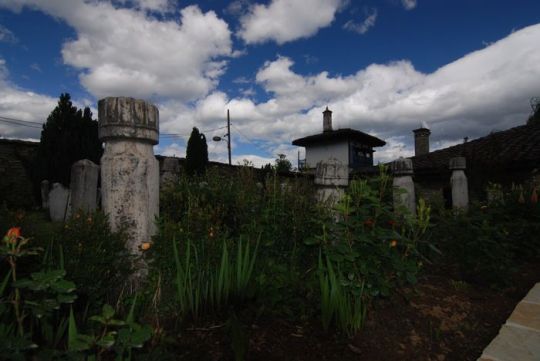
Catalaunian Fields in northern Gau
This dance of forces across northern Gaul ended in July 451 on the Catalaunian Fields in northern Gaul. In the sixth century this was already incorrectly considered one of the great battles of the western world, and historians imagined an impeccable Latin oration for Attila as he suitably roused his troops at the outset of battle:
After victories over such great nations, after bringing the world to its knees if only you would stop to receive it, I would think it foolish to try to sharpen your spirits with words as if you were novices. Let the new general or the untried army try such things. It is not right for me to say anything trite here, nor should you have to listen to such.24
The massed armies—probably indistinguishable from one another to the observer25—clashed that day and the Huns came off second best, retreating across the Rhine.
The next year, weakened by defeat and perhaps also by disease among his people, Attila confined himself to raiding north of the Po River in Italy, returning again to his cross-Danube haunts for the winter. There he died suddenly. Gaudy rumor assigned his death to a wedding night, barbaric excess, and a resulting hemorrhage—or was it a knife wielded by his new wife?—but we have no reason to take any such stories at face value. Attila was gone, and so was the threat he represented. The Huns did not disappear, and those bearing similar names and some relationship to the diverse groups that had assembled under Attila would crop up long after; but in that moment, the greatest force outside the empire that had both supported and threatened it crumbled. Aetius had prevailed, by some mixture of luck, stubbornness, and valor.
The Roman government
He was not trusted or loved. The Roman government had come to depend entirely on the leadership of men like him—men who saved them, but whom they repeatedly hunted down and murdered. Stilicho had been killed in 408 at his emperor’s order, and perhaps thousands of other “barbarians”—good, assimilated Romans in every respect—were slain at the same time. Aetius faced worse balkan tours 2023. His emperor, whom he had served and saved for two decades, turned on him and in 454 in Ravenna, when Aetius was making a report on the state of the army’s finances, Valentinian murdered him with his own hand—and the help of a few burly soldiers who held the victim for the coup de grace. Six months later, allies of Aetius murdered Valentinian. They had been put up to it by other members of the court; the good order of Rome was preserved. The dignified senator Petronius Maximus, qualified by his distinguished rank and family and nothing else, became the emperor. He lasted all of two months. Three weeks later, in June 455, the Vandals reached Rome, sacked the city, and carried away (allegedly) precious treasures that Emperor Titus had looted from the Temple of Jerusalem almost 400 years earlier; they also took along an empress and two princesses.
The Romans’ murders of Stilicho and Aetius were eerily similar. An imperial regime under pressure gave command to a general who straddled the border dividing Roman from barbarian. Over a few years, the general succeeded in calming a chaotic situation. He used his judgment and diplomacy to negotiate effectively with other generals who could be dangerous. The progress was palpable and of great value, and at the point of greatest success, the ineffective, traditionalist, and uncomprehrending emperor became anxious, jealous, and optimistic—in short, he lost touch with reality—and engineered the murder of the general, who had been the making of him. What becomes of the emperor in such a case is of no interest, but the goals of calm and prosperity that were before in reach now receded dramatically from view. The most powerful force working against the Roman empire on such occasions was the ambition, the patriotism, and the stupidity of the empire’s leaders themselves.
0 notes
Photo
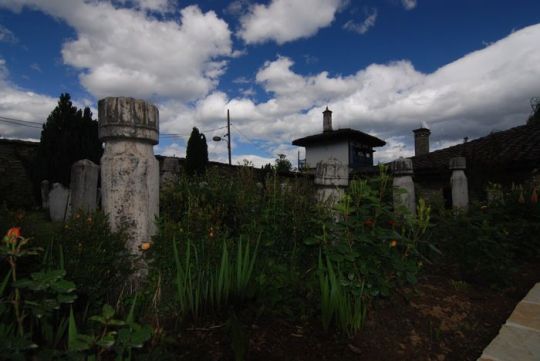
Catalaunian Fields in northern Gau
This dance of forces across northern Gaul ended in July 451 on the Catalaunian Fields in northern Gaul. In the sixth century this was already incorrectly considered one of the great battles of the western world, and historians imagined an impeccable Latin oration for Attila as he suitably roused his troops at the outset of battle:
After victories over such great nations, after bringing the world to its knees if only you would stop to receive it, I would think it foolish to try to sharpen your spirits with words as if you were novices. Let the new general or the untried army try such things. It is not right for me to say anything trite here, nor should you have to listen to such.24
The massed armies—probably indistinguishable from one another to the observer25—clashed that day and the Huns came off second best, retreating across the Rhine.
The next year, weakened by defeat and perhaps also by disease among his people, Attila confined himself to raiding north of the Po River in Italy, returning again to his cross-Danube haunts for the winter. There he died suddenly. Gaudy rumor assigned his death to a wedding night, barbaric excess, and a resulting hemorrhage—or was it a knife wielded by his new wife?—but we have no reason to take any such stories at face value. Attila was gone, and so was the threat he represented. The Huns did not disappear, and those bearing similar names and some relationship to the diverse groups that had assembled under Attila would crop up long after; but in that moment, the greatest force outside the empire that had both supported and threatened it crumbled. Aetius had prevailed, by some mixture of luck, stubbornness, and valor.
The Roman government
He was not trusted or loved. The Roman government had come to depend entirely on the leadership of men like him—men who saved them, but whom they repeatedly hunted down and murdered. Stilicho had been killed in 408 at his emperor’s order, and perhaps thousands of other “barbarians”—good, assimilated Romans in every respect—were slain at the same time. Aetius faced worse balkan tours 2023. His emperor, whom he had served and saved for two decades, turned on him and in 454 in Ravenna, when Aetius was making a report on the state of the army’s finances, Valentinian murdered him with his own hand—and the help of a few burly soldiers who held the victim for the coup de grace. Six months later, allies of Aetius murdered Valentinian. They had been put up to it by other members of the court; the good order of Rome was preserved. The dignified senator Petronius Maximus, qualified by his distinguished rank and family and nothing else, became the emperor. He lasted all of two months. Three weeks later, in June 455, the Vandals reached Rome, sacked the city, and carried away (allegedly) precious treasures that Emperor Titus had looted from the Temple of Jerusalem almost 400 years earlier; they also took along an empress and two princesses.
The Romans’ murders of Stilicho and Aetius were eerily similar. An imperial regime under pressure gave command to a general who straddled the border dividing Roman from barbarian. Over a few years, the general succeeded in calming a chaotic situation. He used his judgment and diplomacy to negotiate effectively with other generals who could be dangerous. The progress was palpable and of great value, and at the point of greatest success, the ineffective, traditionalist, and uncomprehrending emperor became anxious, jealous, and optimistic—in short, he lost touch with reality—and engineered the murder of the general, who had been the making of him. What becomes of the emperor in such a case is of no interest, but the goals of calm and prosperity that were before in reach now receded dramatically from view. The most powerful force working against the Roman empire on such occasions was the ambition, the patriotism, and the stupidity of the empire’s leaders themselves.
0 notes
Text
The Villa Diary, entry one
The Villa Diary 7.5.2018 Day One in the Villa Abegg. Bel Filippo and Madama Cristina’ s love nest. Bel Bruce and Madama Jasmina, we made our bed (and now we have to lie in it). We came punctually, and started cleaning the dust of history from our attic, where we plan to finish our novels during the next few months. We are the only tenants in the villa in May, except for one security guard, who lets us in. We even got some electrical power up in our attic today, thanks to our kind hosts the Compagnia San Paolo, who want us to be up there, and finish those novels... Novels about Turin, which are related to that royal villa and the long history of the Compagnia itself. Jasmina was in the sun by the rain-drenched pond, reading a book about the ‘Umiliate,’ a 400 year old women’s group of female solidarity. They were rich aristocratic ladies, helping Turinese women who were poor, lost, sick or old. Bruce was going through the villa, searching every dark corner for brooms, chairs, carpets, tools, maps, decoration, and reference books. Sitting in an old armchair in front of that window overlooking the beautiful garden with its double rows of magnolias, Jasmina felt at peace. The book is coming along, she felt good omens. Bruce, instead, was startling the spirits with his tools and energy. The air currents were strong through our attic, or maybe they were ghosts, for they knocked his portable bottle off the table and shattered it. This lightweight red bottle was empty, but had a few dregs of Piedmontese wine in it. Jasmina cleaned the floor, putting aromatic wine drops behind her ears for good luck. At 5 pm the working day was over and we had to abandon our royal rooms, like Cinderellas. The moment we stepped outside the villa gates, a tremendous storm hit us, with drenching rain and pelting hail. We were caught outside walking, and had never been in the streets of Torino during such a violent tempest. We hid in closed doorways in our raincoats as our feet got soaked and hail pellets bounced in the gutters, but we took this as a sign, philosophically. Torino is a city of white and black magic, sometimes you cannot tell the difference. The ghosts of our ancestral hosts Cristina and Filippo were with us. 10.5.2018 A photo shoot all over the premises, inside and out. These glamorous photos look better than we feel, so maybe we should aspire to feel as grand as we look! We are still cleaning and arranging the office, and taking long breaks for reading, with a lot of ghosts in the dust. Once out of the hushed villa privacy, Jasmina could finally understand why royalty felt some practical need to live inside huge palace estates. As a contemporary urban gutter-rat who loves big loud dirty cities, she hadn’t expected to be a fan of secluded royal refinement. She had never admired nature, fountains, gardens, birds and flowers, and was hard put to notice any difference between kinds of trees, or kinds of bees. Now she felt some important understanding dawning, of different times, different ways of life. Once outside the city racket, we can see how the city tires and exhausts us, by being too much, all at once…. In this world, there is too much of beauty and not enough love, maybe love of the beauty? 13.5.2018 Day 3 of the residency, rain rain rain...cold cold cold. Jasmina sat in various huge rooms to avoid the sense of gloom and chill, but couldn’t manage. So she started singing and dancing in the big rooms, to cheer up, imagining how it must have been gloomy for the inhabitants 375 years ago, in the same Turinese gray damp weather, nothing but candles. It even hailed at one point, but only on one side of the villa. She run up and down the grand, stony stairs, imagining how many servants were once doing that, no electric lights, no elevators… A hell of a life, you had to be young, healthy, strong and lucky to work in such a fancy place, scampering upstairs and downstairs in cold and darkness, running errands, taking messages and orders, managing all the rooms. What if you were outside the palace gates, sick and weak and poor? A grand, towering palace can look ominous, oppressively cold and dark. But beauty counts. Madama Cristina and Bel Filippo both loved art and music, such people usually have some core of kindness in them, they can drink wine and laugh at themselves. We half-expect them to arrive in a ghost-carriage and take command of the place, briskly removing centuries of renovations and demolitions, back with the candelabras and the string quartets. For the time being it’s enough to have what they did: a beautiful view of Turin from a hillside, the sight of the River Po in upheaval due to rains. Cristina and Filippo planned and built this palace themselves, but, like us, did they ever wonder: what on earth am I doing in this place? Bruce, alias “Bruno Argento,” was writing all day, struggling with his regional novel about the baroque period of Turin. The attic seems to focus his energies, while Jasmina is still collecting mystical vibrations, hoping to burst into the final scene of her novel, ‘La Clandestina.’ Inspiration will come in a fiery chariot; on the night Cristina died, her ghost was seen rolling away from Turin, uphill to this villa, inside a flaming carriage drawn by fiery horses, which capered right over the flowing River Po without bothering with a bridge. 17.5.2018 Some people came to see the villa as potential clients, or tenants, and then, in our strange literary attic, we really did feel like ghosts. We are trying to be honest about our ghost-like residency here: it’s us who are truly phantom-like creatures, flitting by like some illusion seen sidelong, while the villa, which is rock-solid and has been here for centuries, has no particular need to haunt us. Hints and traces of Cristina and Filippo are all over the place, the smells, the sounds, the decorated ceilings and the lofty shape of the spaces, but we are the ones who dust the place. It’s like opening the closet of some deceased relative, finding it full of old-fashioned clothes, made for them, not you, and the wrong size for you, not your style at all; yet then, when you dare to put them on, eerily, they fit. Jasmina has found a favorite spot on the brink of a small dry fountain: a perfect spot for sunbathing, a good place for literary contemplation of Nefertiti the Egyptian Sun-Worshipping Queen, and also Madama Cristina. Cristina proclaimed herself “Queen of Cyprus,” even though Cristina had never in her life been anywhere near Cyprus; that distant sunny island was her Savoyard dynastic fantasy. Under the sun, both queens could be somehow equal; centuries apart, and living on different continents, but a woman with her eyes closed in sunlight might be anybody. Any mysterious queen can become just a woman on the earth, under the sun, thinking and emoting. A small interior freedom, but not a small thing for a queen who is always guarded, escorted, gawked at, admired, worshipped or spied upon. A universal moment of being, that any woman might share with all others.
0 notes
Text
In 1518, 400 People Eerily Died From Dancing. To This Day, Nobody Knows Why
In 1518, 400 People Eerily Died From Dancing. To This Day, Nobody Knows Why
In 1518, 400 People Eerily Died From Dancing. To This Day, Nobody Knows Why
It was a normal July day in Alsace, in what is today France, in 1518. People were going about their business in the city of Strasbourg. Then a woman identified only as Frau Troffer or Troffea began dancing in the street, with what people would later describe as a grimace of pain on her face. She wouldn’t… The post In 1518, 400 People Eerily Died From Dancing. To This Day, Nobody Knows Why appeared first on LittleThings.com.
from YESECART @ Google+ https://plus.google.com/115925611024359424674/posts/JZeY9im4Q67 from YESECART http://yesecart.tumblr.com/post/155711609302
0 notes